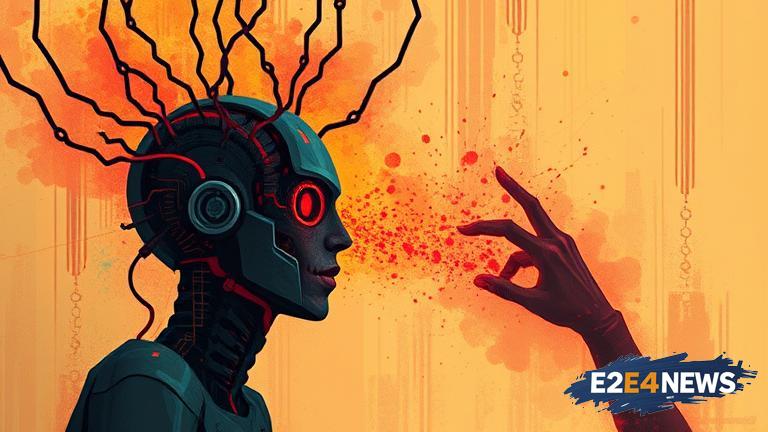The rise of AI-powered chatbots like ChatGPT has revolutionized the way we interact with technology, but a growing number of doctors are sounding the alarm over a potential link between these chatbots and psychosis. According to recent reports, some individuals who have engaged with ChatGPT have experienced symptoms of psychosis, including hallucinations, delusions, and disorganized thinking. While the exact nature of this link is still unclear, experts speculate that the immersive and interactive nature of ChatGPT may be contributing to the development of psychotic symptoms in vulnerable individuals. ChatGPT’s ability to generate human-like responses and engage in conversations that mimic real-life interactions may be particularly problematic, as it can create a sense of false reality that can be difficult for some users to distinguish from reality. Furthermore, the anonymity and isolation of online interactions may exacerbate the risk of psychosis, as individuals may be more likely to engage in excessive and unregulated use of ChatGPT. The potential consequences of AI-induced psychosis are far-reaching and alarming, with some experts warning of a potential epidemic of mental health problems if left unchecked. As the use of AI-powered chatbots continues to grow, it is essential that we take a closer look at the potential risks and consequences of these technologies. The World Health Organization (WHO) has already recognized the potential risks of excessive technology use, including the development of mental health problems such as addiction, depression, and anxiety. However, the specific link between ChatGPT and psychosis is a relatively new and understudied area of research. To better understand this link, researchers are calling for further studies to investigate the potential mechanisms by which ChatGPT may contribute to the development of psychotic symptoms. This may involve examining the neural correlates of ChatGPT use, as well as the psychological and social factors that contribute to its use. In the meantime, doctors and mental health professionals are urging caution and vigilance when it comes to the use of ChatGPT and other AI-powered chatbots. They recommend that individuals who are prone to mental health problems or who have a history of psychosis exercise extreme caution when using these technologies, and that parents and caregivers closely monitor the use of ChatGPT by children and adolescents. The development of AI-powered chatbots like ChatGPT is a rapidly evolving field, with new technologies and innovations emerging all the time. As such, it is essential that we prioritize the development of safe and responsible AI technologies that prioritize the well-being and safety of users. This may involve the development of new guidelines and regulations for the use of AI-powered chatbots, as well as the creation of public awareness campaigns to educate individuals about the potential risks and consequences of these technologies. Ultimately, the key to mitigating the risks of AI-induced psychosis will be to adopt a cautious and nuanced approach to the development and use of AI-powered chatbots. By prioritizing the safety and well-being of users, we can ensure that these technologies are used in a way that promotes positive outcomes and minimizes harm. The use of AI-powered chatbots like ChatGPT has the potential to revolutionize the way we interact with technology, but it is essential that we approach this technology with caution and respect. As we move forward, it will be crucial to prioritize the development of safe and responsible AI technologies that prioritize the well-being and safety of users. The potential consequences of AI-induced psychosis are far-reaching and alarming, and it is essential that we take a proactive and precautionary approach to mitigating these risks. By working together, we can ensure that the benefits of AI-powered chatbots are realized while minimizing the risks to mental health. The future of AI-powered chatbots is uncertain, but one thing is clear: we must prioritize the safety and well-being of users above all else. As the use of ChatGPT and other AI-powered chatbots continues to grow, it is essential that we remain vigilant and proactive in our efforts to mitigate the risks of AI-induced psychosis. The development of AI-powered chatbots is a rapidly evolving field, and it is essential that we stay ahead of the curve in terms of understanding the potential risks and consequences of these technologies. By prioritizing the safety and well-being of users, we can ensure that the benefits of AI-powered chatbots are realized while minimizing the risks to mental health.
